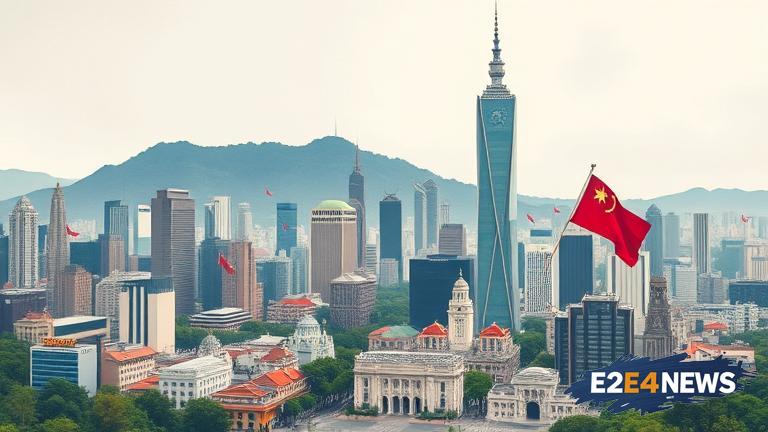The Taiwanese political landscape has been marred by gridlock for quite some time now, and the recent recall vote has done little to alleviate the situation. The China-friendly party, which has been at the center of controversy, has managed to survive the vote, much to the dismay of its opponents. This development has significant implications for Taiwan’s relations with China, with many fearing that the island’s autonomy may be compromised. The recall vote was seen as a crucial test for the party, which has been accused of being too cozy with Beijing. Despite the allegations, the party has maintained a significant level of support, particularly in the southern regions of Taiwan. The opposition, on the other hand, has expressed disappointment and frustration at the outcome, vowing to continue their fight against the party’s perceived pro-China stance. The political gridlock in Taiwan has been exacerbated by the complex and often contentious relationship between the island and mainland China. The two sides have been governed separately since the end of the Chinese Civil War in 1949, but Beijing has long considered Taiwan to be a part of its territory. The China-friendly party’s survival has been seen as a victory for Beijing, which has been seeking to increase its influence over Taiwan. However, the outcome has also sparked concerns about the erosion of Taiwan’s democracy and the potential for increased Chinese interference in the island’s affairs. The recall vote has also highlighted the deep divisions within Taiwanese society, with many citizens feeling that the political system is not representative of their interests. The opposition has accused the China-friendly party of using underhanded tactics to win the vote, including vote-buying and intimidation. The allegations have been denied by the party, but they have contributed to the sense of mistrust and disillusionment among the electorate. As the political landscape in Taiwan continues to evolve, it remains to be seen how the island will navigate its complex relationship with China. The international community is watching with bated breath, aware that the situation has significant implications for regional stability and security. The United States, in particular, has been keenly interested in the developments in Taiwan, given its strategic importance in the Asia-Pacific region. The US has traditionally been a strong supporter of Taiwan, but the current administration has been walking a fine line between maintaining good relations with Beijing and supporting Taiwan’s autonomy. The situation in Taiwan is a complex and multifaceted one, with no easy solutions in sight. However, one thing is clear: the political gridlock and the China-friendly party’s survival have significant implications for the island’s future, and the world will be watching with great interest as the situation unfolds.
